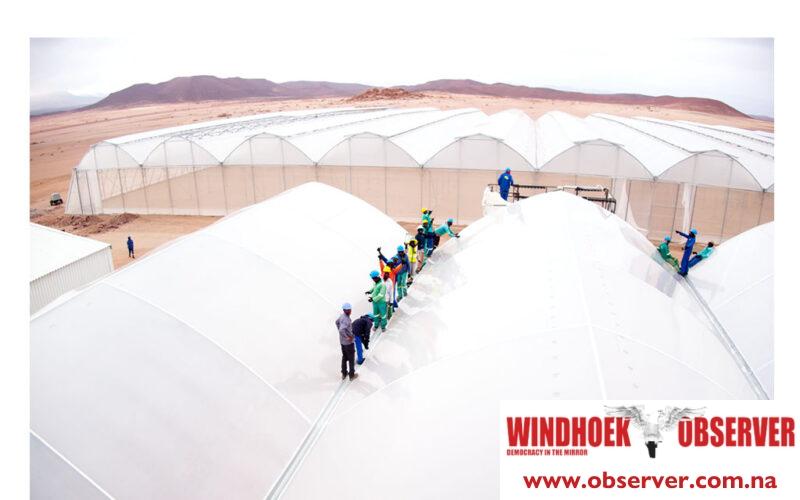CHAMWE KAIRA
Germany has ambitious targets of preventing climate change that are in line with internationally agreed commitments, Thomas Feidieker, Head of Development Cooperation at Embassy of the Federal Republic of Germany in Windhoek told Observer Money this week.
Feidieker said reducing the use of fossil energy to decarbonize the German, as well as the global economy, is high on the agenda. The German interest follows several complementary and interdependent targets, he said.
“The cooperation between Namibia and Germany as well as the European Union is particularly close because of the late President Hage Geingob’s vision to develop the Green Hydrogen industry in Namibia,” said Feidieker.
He said Germany supports Namibia with managing a just energy transition towards renewable energy. Namibia has almost perfect conditions to produce an abundance of renewable energy and green hydrogen.
“This offers Namibia the unique opportunity to become not only energy independent but also a major exporter of clean energy and green hydrogen within Africa as well as towards the world market,” said Feidieker.
On the one side, Germany, as other countries with a strong climate agenda, needs GH2 to decarbonize, for instant, its chemical and iron industry, he said.
“On the other side, based on renewable energy and green hydrogen production, Namibia has the opportunity to enter a path of green industrialization as envisaged by the late President (assembly of photo voltaic and wind turbines, production of synthetic fuels, fertilizer and other chemical products, green, that is carbon free mining and iron production. This creates a manufacturing industry, value addition, jobs and income for Namibians,” he added.
Feidieker said supporting renewable energy and green hydrogen production in Namibia is a win-win situation for both countries.
Commenting on the reasons why Germany invested in the Daures Net Zero Green Hydrogen project in the Erongo Region, Feidieker said main reason of this research project is to investigate and to collect data about the opportunities which arise from the green hydrogen production in utilizing the concomitant ammonia production, as well as, in the specific case of Namibia, the desalination of water with a view on increasing agricultural production.
“The German Federal Ministry provided 12.3 million Euro as a grant for the project Daures Green Hydrogen Village. These funds are contributing to the bigger investment of the implementing company Enersense Energy Namibia (Pty) Ltd.”
The Daures Green Hydrogen Village will be Africa’s first 100% Net Zero green community. The project will also produce Namibia’s first carbon free agriculture. Subsequent phases will spear the village to house over 2000 residents, generate over 1 GW of clean energy and produce over 350 000 tons of green ammonia.




